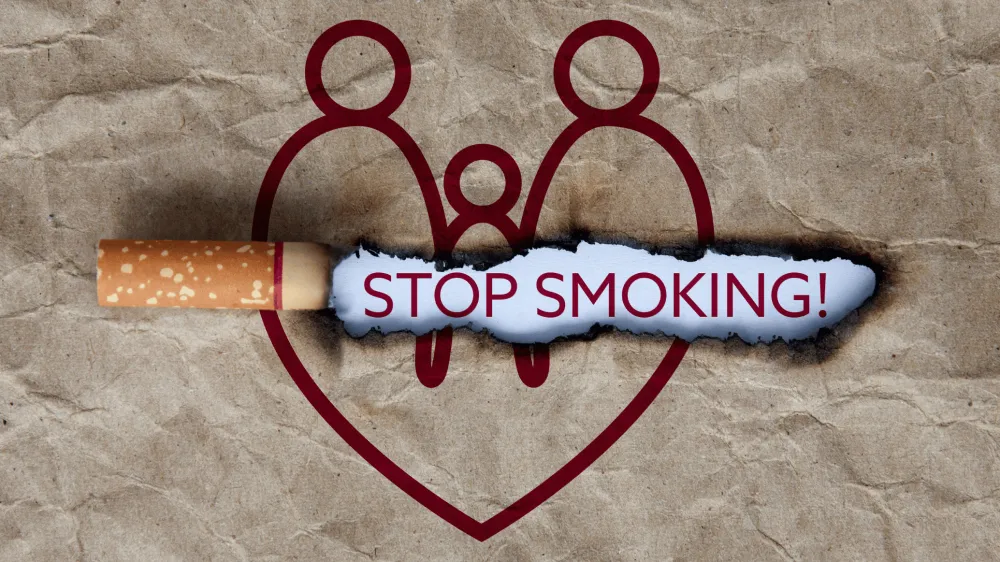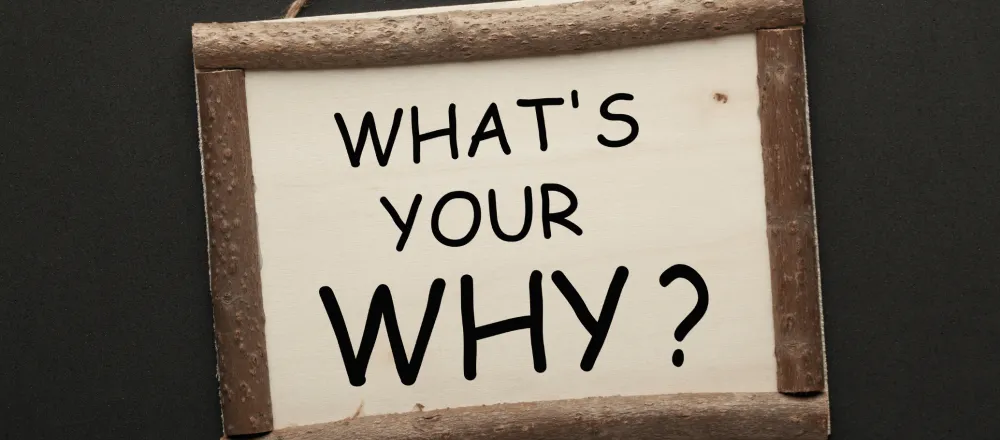How To Quit Smoking Cigarettes For Good - The 6-Step Plan

Why Is It So Hard To Quit Smoking
Despite being aware of the immense risks associated with smoking, many people still struggle to kick the habit for good. Quitting isn't an easy road but it's worth taking the journey in order to enjoy long-term benefits including improved health and increased quality of life.
Smoking tobacco is more than just a physical addiction; it's also a psychological one. Nicotine provides a temporary high, and many people come to rely on cigarettes to boost their outlook, relieve stress and anxiety, as well as increase enjoyment in social situations or at the end of a long day. Developing smoking habits around meal times or daily rituals creates an even greater dependence, making it even harder to resist the urge to smoke. When nicotine is no longer available and nicotine withdrawal symptoms manifest, the psychological reasons that lure us back into smoking become increasingly significant and oftentimes uncontrollable.
Quitting smoking is a difficult process, but it is possible with the proper support and planning. You'll need to confront the physical side as well as the habitual patterns that go along with it. Below we will look at creating a plan to give you the best chance at succeeding.
The 6-Step Plan To Stop Smoking
A small percentage of people can just quit smoking cold turkey with no planning at all, but most have more success when having a tailored plan. A good plan should provide short-term solutions to help people get through the days, and weeks after quitting and address long-term goals of staying a nonsmoker. Taking the time to create an individualized plan for yourself before ending your dependence on tobacco use will lead to greater success in quitting for good. Below is an outline of the 6 steps, and following we will discuss each step in more detail.
1. Know The Reasons Why You Want To Quit Smoking - There are many reasons to quit smoking, but to be successful you need to think about the reasons that are important to you. Really knowing your "Why" can go a long way towards being successful.
2. Pick Your Method To Stop Smoking - There are many different ways to stop smoking, from cold turkey, or nicotine replacement therapy, to hypnosis. It's important to become familiar with the different options so you can pick the one that fits you the best.
3. Prepare For The Challenges Of Quitting Smoking - Having a plan of what you will do instead of smoking during times of stress, or when you have a craving is an important step to stop smoking. In this step, you will think of times when you smoke and then brainstorm about alternatives.
4. Pic A Quit Smoking Date -This is the day you become a nonsmoker. Pick this day strategically so that you have time to prepare, but isn't too far away that you lose motivation.
5. Get Support From Family and Friends - Getting support from friends and family is a good way to keep you on track. You can let them know how they can help you and get their understanding if you are irritable or anxious during the first few days or weeks.
6. Remove Smoking Temptations - Sometimes it is the simple things that make the biggest difference. Removing as many smoking temptations as possible and making it more of an effort to start smoking again can be one of those things that make a big difference.
Creating Your Personalized Plan
In the above section, we looked at the 6 steps to creating a quit-smoking plan. In this section, we will dive deeper into each step so you can create your personal plan to stop smoking.
Knowing Your Why

The motivation for quitting smoking can vary greatly from person to person. No matter what personal reasons are driving your desire to quit, understanding why you want to stop smoking is an important first step in your journey towards becoming smoke-free. Think about which ones are the most important to you as you read through the most common reasons below.
Heath Benefits
If you smoke, quitting is the ultimate gift to yourself! Your body can begin to repair itself as soon as you stop smoking and regardless of your age or how long it's been since you started. You can reduce your chances of serious diseases such as lung cancer, and improve life expectancy and the quality of your life. According to the Surgeon General, quitting smoking is the most beneficial step smokers can take to improve their health.
Your Wallet
Smoking cigarettes is an expensive habit. In some places, one pack is more than $10. Even in places where the price of a single pack of cigarettes is around $5, a pack a day will add up to more than $1800 per year. As time goes on that number just keeps growing higher due to rising prices.
Convenience And Control
Everyone who smokes knows the hassle of having to step outside many times a day. Standing in the cold and the rain can make smoking quite unpleasant. Now that most states and cities have passed clean indoor air laws it's even more of a hassle to smoke. Taking back the control cigarettes seem to have over people who smoke is an important reason to quit smoking for many smokers.
Friends And Family
We don't live in a vacuum, and the simple truth is smoking does affect the people around us. It can be the dangers of secondhand smoke, setting a bad example for your children, or simply taking time away from family and friends when you duck out to smoke. These are all things that have an impact.
Quality Of Life
Here are some ways that quitting can improve your quality of life
Breathing easier - When you stop smoking your body will start to clear the toxins from your lungs and increase your lung capacity. This will help you breathe easier and rid yourself of that smoker's cough.
More energy - When your lung function improves you will be getting more oxygen into your body which results in more energy.
Sense of taste and smell improve - One of the first things to improve when you quit smoking is your sense of taste and smell. Imagine fully tasting food and enjoying the smell of the outdoors again.
Improved immunity - As you quit smoking and your body starts to repair itself your immunity will also improve. This means being sick less and enjoying life more.
Quality time - Not having to step outside for a cigarette throughout the day or evening means more uninterrupted time with family and friends.
Next Step
Use the information above to come up with your own reasons why quitting is important to you. When you create your list make sure it's personal to you. Add the names of your children or grandchildren, and list specific times or events that would be more enjoyable as a nonsmoker. Think about what you could buy or a trip you could take with the money you save. The more personal it is for you the more motivating it will be.
Methods To Stop Smoking

With the right plan, anyone can beat a tobacco addiction. From pharmaceuticals to natural remedies such as hypnosis and acupuncture, there are countless ways of tackling this harmful habit. We listed many examples below so you can start thinking about which one will be the best for you.
Medications
Smoking cessation medications can provide a timely boost when it comes to alleviating withdrawal symptoms and decreasing cravings for cigarettes. To get the most out of these drugs, it is important to make sure that you are following the guidance of your doctor. The U.S. Food and Drug Administration (FDA) has currently approved several efficient anti-smoking medications.
Nicotine replacement therapy (NRT) - This treatment helps to reduce cravings while supplementing the body with nicotine, without all of the toxins that come from smoking cigarettes. NRT comes in different forms including nicotine nasal spray, nicotine gum, nicotine patches, and nicotine pills. This enables people to gradually cut back on their nicotine intake, thus decreasing withdrawal symptoms and allowing them to focus their energy on learning new ways to cope with withdrawal. While this method focuses on nicotine addiction, it does not address the psychological side of smoking as a habit.
Non-nicotine medication - Bupropion (Zyban) and varenicline (Chantix, Champix) are two medications that work to reduce cravings and withdrawal symptoms while helping an individual resist the urge to give in to smoking. Although these medications may serve as beneficial tools in reducing cigarettes in your life, it is important to note that they should only be used short-term and under doctor supervision.
Important information about vaping (e-cigarettes) - Some people have turned to vaping as a tobacco smoking cessation aid, but it's important to know the FDA has not approved vaping as a method of smoking cessation. Some reports have linked vaping to lung disease and other health risks, raising further concern over the safety of e-cigarettes. For more information about vaping read: What Happens When You Quit Smoking And Start Vaping
Smokeless tobacco - Many people are under the false assumption that smokeless tobacco, such as chewing tobacco, is a safe alternative to smoking cigarettes. This is far from true as smokeless tobacco contains just as much nicotine and other harmful chemicals. In fact, its absorption rate of nicotine can be up to four times greater than what would be inhaled from a cigarette. Even worse, smokeless tobacco also increases the risk of developing gum diseases, mouth cancer, cardiovascular disease, and stroke.
Alternative Therapies
There are also some natural methods to quit cigarette smoking that do not involve nicotine or other prescription medications.
Hypnosis - Hypnosis has proven to be an effective and safe way for individuals to overcome their habit of smoking. During a hypnosis session, people are guided into a deeply relaxed state that alters their conscious mental awareness, this allows them to become more present and open-minded to suggestions they may not have considered before. Hypnosis helps reveal and reinforce the subconscious beliefs held by many smokers, such as remembering how good it feels to breathe easily without laboring for air or having healthier teeth and nails. Ultimately, this popular option has produced tangible results for smokers all over the world who feel empowered enough to quit in a relatively short amount of time.
Acupuncture - Acupuncture is one of the oldest known medical techniques, and it has been used to treat a variety of conditions for centuries. Many believe that acupuncture works by triggering the body to release endorphins, which are natural pain relievers that help relax our bodies and minds. Recently, it has gained popularity as an aid for smoking cessation as it helps with managing withdrawal symptoms as well as dealing with cravings.
Behavioral Therapy - Behavior therapy helps to teach new coping skills and break those all-too-familiar smoking habits for good. By learning these new skills, those struggling with the vice of nicotine dependence can take back control of the wheel and finally feel relieved from this relentless habit.
Preparing for Challenges

Smokers often rely on cigarettes to help them manage and cope with difficult emotions like stress, depression, loneliness, or anxiety. It is important to think about how you will handle uncomfortable and unpleasant situations without having a cigarette. While giving up smoking can be made easier with strategies such as finding alternate activities or developing new coping skills, such as deep breathing and moving your body, it won't change the fact that difficult feelings are a natural part of life and will remain even when cigarettes are no longer an option. Recognizing this means taking the time to think about healthy ways you can respond instead of fetching a pack of cigarettes. This can range from writing in a journal, meditating, or calling a friend for support when it feels hard to cope.
Keep Track Of When You Smoke
The first step is to keep track of the different times and situations when you smoke. As you lead up to your quit day, take a few days before to record when and why you smoke. What activity were you doing, how were you feeling, were you alone or with someone else? All of this information can help you determine different things you can do instead of smoking in these situations.
Come Up With Alternatives To Smoking
Once you have a list of when you smoke and the different circumstances, you can start planning what you can do instead to manage any cravings. Here is a list of ideas to get you started.
Drink water - Slowly drinking water can help with the hand-to-mouth habit, and reduce your cravings. Many times people crave the break associated with smoking more than the cigarette itself. Taking a break and drinking water can be a healthy alternative to help you relax.
Do some breathing exercises - Much like drinking water, doing some breathing exercises can relax you and can be a mental break from what you are working on, or a way to reduce stress.
Go for a walk - Going for a walk or doing some other physical activity is good for your health and will help take your mind off smoking. You can also combine walking or other low-impact activities with breathing exercises or drinking water.
Use an App - Using an app on your phone is another way of taking a little break and getting your mind off smoking. It might be a short game you can play, reading the news, learning a language, or anything else you find interesting and engaging.
Gum or healthy snack - Chewing gum or eating a healthy snack can help with cravings and the desire to put a cigarette in your mouth. If you use this, you want to be careful about what you choose as a snack. You want to choose something healthy and low-calorie, carrots, celery, or sunflower seeds are a good choice.
Fidgit device - There are many different fidget devices on the market. These are usually very small and portable so they can always be with you. In times you can't get away they can help get your mind off cigarettes and give your hands something to do.
Awareness exercise - When we have any craving our focus is on the thing we crave. Expanding your focus can eliminate these cravings. What you want to do is expand your attention. Use your peripheral vision to see how much you can notice around you. Notice how many different sounds you can hear. Become aware of the temperature in the room and the different things you can feel. Experiencing as much as possible through your senses will change your focus and is also very relaxing.
Picking A Quit Smoking Date

Picking a date to quit is an important step. Usually, picking a date within the next two weeks is a good choice. This gives you time to prepare but is not too far in the future. You can pick a day that has some meaning to you like a birthday or anniversary, or just a random day that makes sense. Here are some things to keep in mind with picking a date.
Plan around trigger events
If there is some event that is coming up that has a strong association with smoking you'll want to pick a day well before that event or after it.
Coordinate with your method of quitting
Depending on your method of quitting you may have to time your quit day around an appointment with a Dr., therapist, or hypnotist. Have some ideas of what times will work for you and then tweak it once you make your appointment.
Get rid of your cigarettes and triggers
We'll talk more about this in a following step, but you want to make sure you have time the day before your quit day to get rid of cigarettes, ashtrays, and lighters, and maybe clean out your car and house.
Get Support From Family and Friends

Having the right support system when quitting smoking can make all the difference. It's important to talk to close friends and family members about how they can help during this process. For some, having moral support in tough times helps keep them on track with their goals. Others need tangible help such as being asked how they are doing with their cravings or someone accompanying them when out socially. Making sure your circles of support understand exactly what type of help you need, will lead to a smoother quitting process. Here are some things you should let them know.
Let them know what to expect
Quitting smoking is never easy, and the first two weeks can be especially tough. During this time, it's important to let family and friends know that you may not be acting your normal self. Tell them that you might be more irritable, depressed, or moody than usual. This way, they can support you better by understanding what you're going through emotionally, and provide words of encouragement when needed.
Let them know what you need from them
It's important to let your friends and loved ones know what they can do to help you. This could be by acting normal and being understanding about what you are going through. It could also be by helping you avoid trigger situations. If there is something that would make it harder for you, maybe it can be planned for a later time. You may also want to go to different restaurants or bars so you are not triggered to smoke. If there are friends who do smoke maybe they will quit with you or let them know you might have to limit the time you spend with them. Even simple words of encouragement can make a big difference at critical times.
Let them know what not to do
Just as important as talking to friends and family about how to help you, is discussing things that could make things harder for you. For people you know who are still smoking it's usually helpful if they don't smoke around you. Other people who are trying to be helpful can sometimes overdo their encouragement and become more of a reminder than helpful. It all depends on you and what you need and don't need. Communicating these needs is important to achieving your goal.
Remove Smoking Temptations
We've talked a little about this in other steps, but in this step, you should really think about what your triggers are so that you can plan to avoid them and communicate them to others. The importance of getting rid of smoking reminders should not be overlooked when trying to kick the habit. Eating away from your usual smoking area, swapping out coffee for tea, starting an exercise routine, or getting enough sleep are all examples of making some changes to avoid triggers. You'll also want to throw away all items associated with cigarettes such as lighters, ashtrays, matches, and packs of cigarettes. Cleaning your car and other places you've smoked is also a good idea. Use these ideas to help you think of what are triggers for you and how to avoid them.
Being Successful
In this article, we talked about how to quit smoking in 6 steps. Taking some time to think about and go through the 6-step process we outlined can be very helpful. According to the American Cancer Society, quitting smoking is the single most beneficial thing you can do for your health. It is important to remember that and if you do happen to slip up, think about what happened and how you can change that on the next try. If you keep trying eventually you will be able to quit. Remember smoking is a habit that you have reinforced over and over for years, so you may have to make several attempts to break it.

Disclaimer
Results may vary from person to person. The services we provide use current information and hypnotic techniques appropriate and tailored to your situation. Our hypnotic processes and services are not meant to diagnose or treat any disease. We provide information, education, and motivation that will guide you toward being more effective in helping yourself and living to your best potential.
Copyright © 2022 MentalImpactHypnosis.com. All rights reserved.

